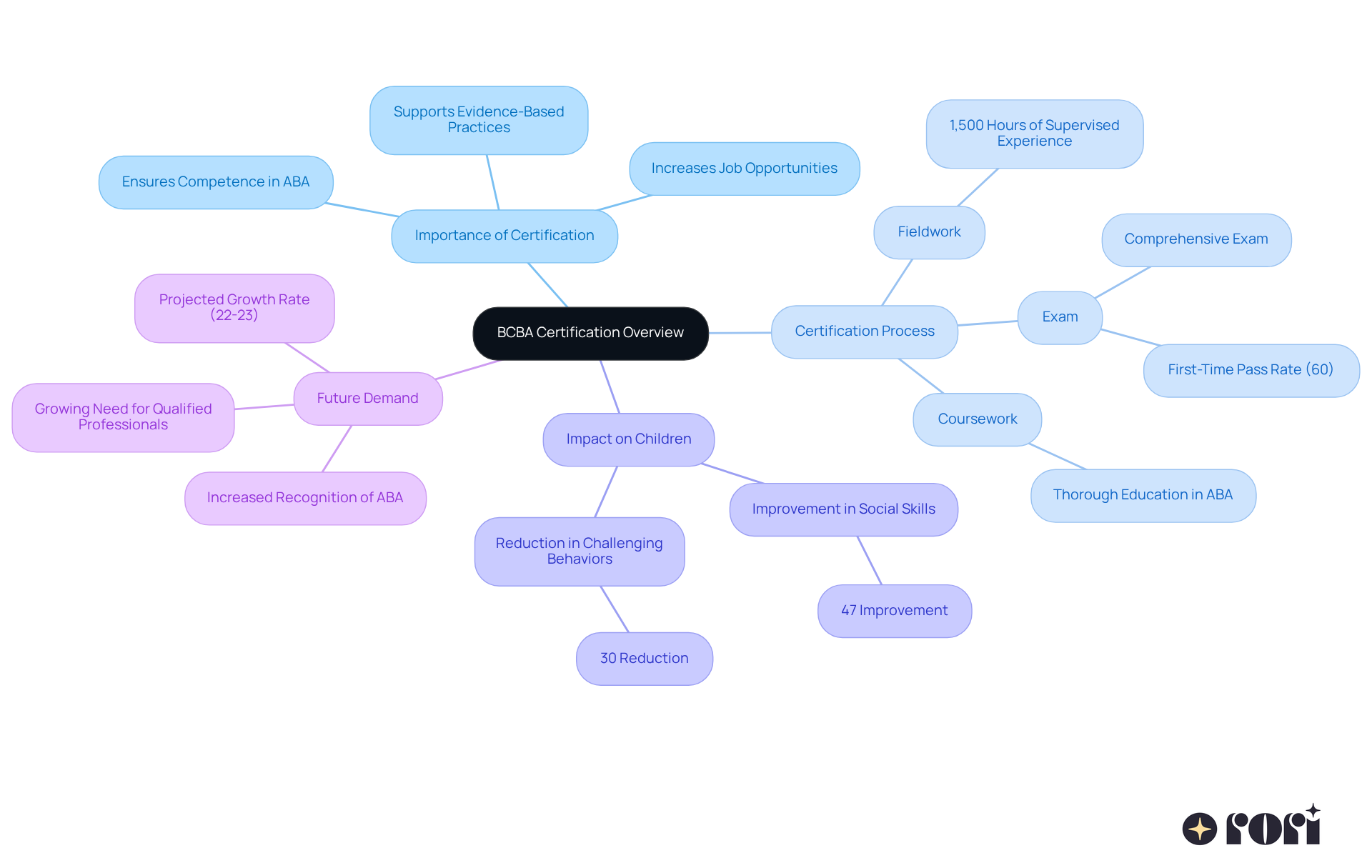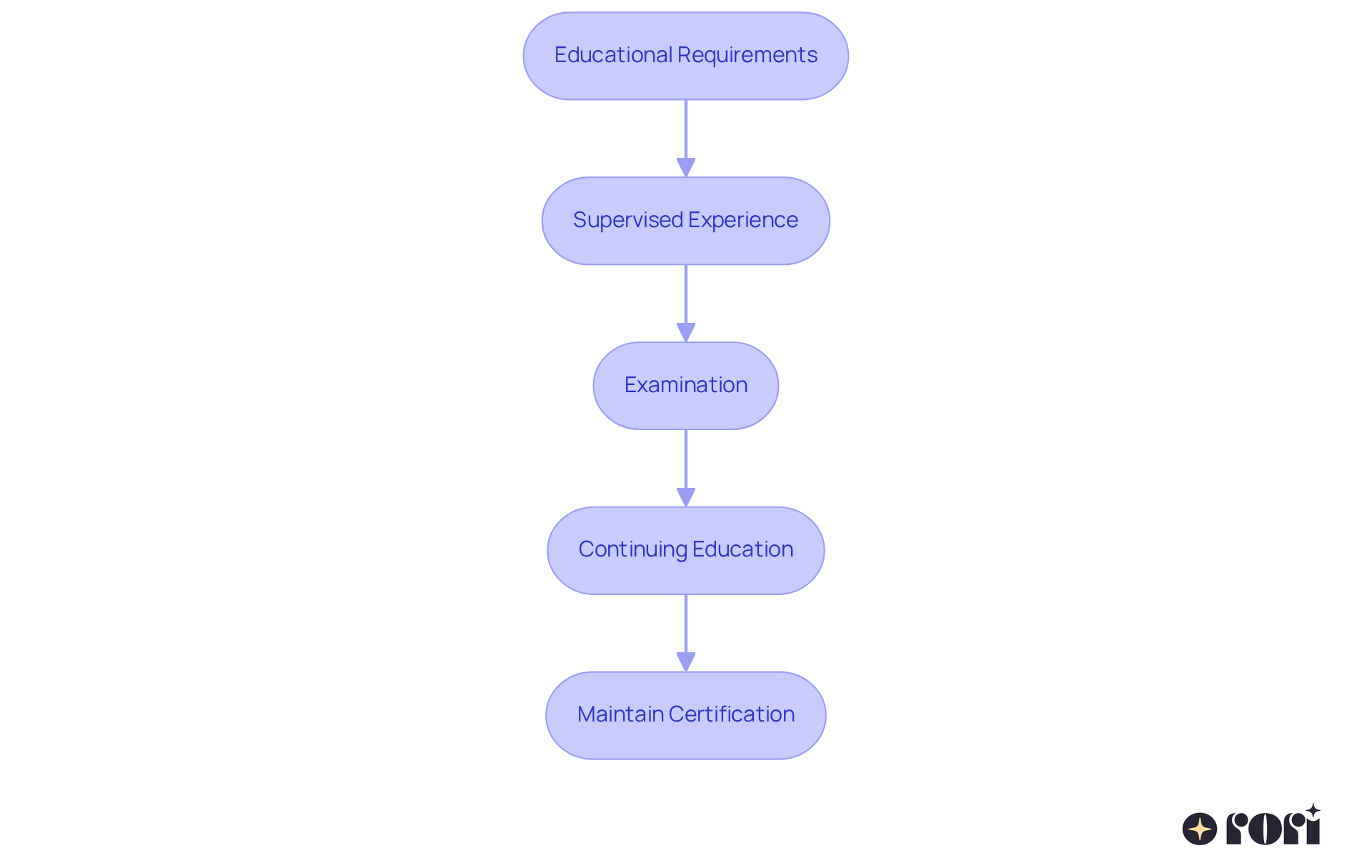This article is a must-read for parents eager to grasp the importance of BCBA certification in special education, especially when it comes to supporting children with autism. Certified BCBAs possess the essential skills and evidence-based strategies that can lead to positive behavioral changes. You’ll find that many children undergoing ABA therapy show significant improvements in their social skills and communication abilities.
Let’s explore this together! Understanding how BCBAs can make a difference is key to helping your child thrive. With their expertise, families can feel more confident in navigating the challenges of autism. Remember, you’re not alone in this journey—there are resources and support systems available to guide you every step of the way!
Navigating the world of special education can feel overwhelming for parents. Understanding the role of Board Certified Behavior Analysts (BCBAs) is a crucial step. These professionals bring specialized training in applied behavior analysis (ABA), making them invaluable allies in fostering positive behavioral changes in children with autism.
By exploring the certification process and the transformative strategies that BCBAs use, parents can discover how to effectively advocate for their child's development. What challenges might arise in choosing the right BCBA? How can parents ensure they are making informed decisions that lead to the best outcomes for their children? Let’s explore this together!
BCBA certification is such an important credential for professionals who have gone through extensive education and training in applied behavior analysis (ABA). This certification ensures that individuals have a solid grasp of behavioral principles and can apply them effectively in various settings, especially in BCBA special education. BCBAs are specially trained to evaluate behaviors, create tailored treatment strategies, and implement interventions that encourage positive behavioral changes in children with autism.
The journey to certification is quite rigorous, involving:
This structured approach ensures that BCBAs are well-prepared to support young individuals and their families in meaningful ways. Did you know that in 2021, first-time candidates had a pass rate of 60%? This really highlights the importance of being well-prepared in this field!
As a parent, it’s essential to recognize how a BCBA's expertise can significantly impact your child’s development. Studies show that kids receiving ABA therapy from certified professionals often make remarkable strides in their behavior and social skills. For instance, research indicates that individuals undergoing ABA therapy can see:
Plus, with the introduction of AI-driven technologies in ABA therapy, treatment effectiveness is on the rise, allowing for 50% more time for direct interaction with your child. This not only benefits your little one but also gives you, as a caregiver, more quality time to engage meaningfully in their therapy.
So, when considering ABA therapy for your child, seeking out certified BCBAs in special education is truly essential. The demand for BCBAs is expected to grow by about 22% to 23% over the next decade, which really underscores the increasing need for qualified professionals in this field. By choosing certified BCBAs, you can ensure that your children receive the best quality of care, supported by evidence-based strategies and your active involvement. Let’s explore this together!

Becoming a Board Certified Behavior Analyst (BCBA) in special education is an exciting journey! It involves a structured pathway with several key steps that pave the way for success:
Educational Requirements: First things first, you’ll need to earn a relevant bachelor’s degree, followed by a master’s in behavior analysis or a related field. This foundational education is super important for grasping the principles of behavior analysis.
Supervised Experience: Next up, you’ll need at least 1,500 hours of supervised fieldwork under a qualified BCBA. This hands-on experience is where the magic happens—applying what you’ve learned in real-world settings boosts your practical skills and confidence!
Examination: Once you’ve got the education and experience under your belt, it’s time to tackle the BCBA certification exam. This exam tests your knowledge of behavior analysis principles and practices. With a typical pass rate of 60% to 70%, it’s clear that thorough preparation is key.
Continuing Education: After certification, the journey doesn’t stop! BCBAs need to complete 32 continuing education units (CEUs) every two years to maintain their certification. This includes specific requirements in ethics and supervision, ensuring you stay in the loop with the latest research and practices in the field.
This organized approach not only prepares you for the challenges of the BCBA exam but also ensures you remain updated in your BCBA special education practice. Ultimately, this benefits the youth and families you assist, making a real difference in their lives. Let’s explore this together and take the next steps toward your BCBA journey!

BCBA special education strategies can truly make a difference for children with autism through various evidence-based practices.
Positive Reinforcement: This approach encourages desired behaviors by offering rewards. Imagine seeing an 85% improvement in social skills and a 90% boost in communication abilities! By using reinforcement techniques like praise or tokens, young learners feel motivated to engage more actively in their educational journey.
Task Analysis: This technique breaks down complex tasks into smaller, manageable steps—especially helpful for individuals with autism. Research shows that task analysis can significantly enhance learning outcomes for kids aged 6 to 14. For instance, brushing teeth can be divided into 18 simple steps, making it easier for little ones to grasp the process.
Visual Supports: Visual aids, such as charts and schedules, help kids understand expectations and routines. These supports can illustrate each step of a task, boosting comprehension and retention—essential for effective learning.
Social Abilities Training: Structured activities that encourage social interaction and communication among peers are vital. Evidence shows that ABA therapy, which often includes social skills training, leads to significant improvements in both social and academic abilities for children with autism.
Individualized Program Development: A qualified behavior analyst creates tailored plans with measurable goals and evidence-based strategies to encourage positive behavior changes and skill acquisition. This ongoing assessment ensures that the strategies remain responsive to each child's evolving needs, adjusting as necessary based on progress reports and caregiver feedback.
Empowering Caregivers: Educating caregivers is crucial in supporting development through ABA. By sharing ABA principles and strategies, caregivers can make informed decisions that positively impact their child’s progress. When caregivers understand reinforcement principles, they can better implement these strategies at home, reinforcing skills learned during therapy sessions.
By applying these strategies, parents can work hand-in-hand with BCBAs in special education to create a supportive and effective educational environment that nurtures their child's growth and independence. Let’s explore this together!

The significance of BCBA certification in special education is truly important, especially for parents looking for the best support for their children with autism. This certification not only confirms the expertise of behavior analysts but also ensures they have the skills needed to implement effective interventions that encourage positive behavioral changes. By understanding the rigorous process of obtaining and maintaining BCBA certification, parents can feel empowered to make informed choices about the professionals they work with.
Throughout this guide, we’ve highlighted the structured journey to becoming a BCBA, including:
We’ve also showcased the transformative impact of BCBA strategies on children’s development, featuring evidence-based practices like:
These strategies are vital for boosting social skills and communication abilities, ultimately leading to better outcomes for children with autism.
In conclusion, the journey toward effective special education for children with autism is greatly enhanced by the involvement of certified BCBAs. We encourage parents to actively seek out these professionals, as their expertise can significantly influence their child's growth and independence. By partnering with BCBAs and understanding the strategies they use, caregivers can create a nurturing environment that fosters learning and development. Together, we can pave the way for a brighter future for our children!
What is BCBA certification and why is it important?
BCBA certification is a credential for professionals trained in applied behavior analysis (ABA). It ensures that individuals have a strong understanding of behavioral principles and can effectively apply them in various settings, particularly in special education for children with autism.
What are the requirements to obtain BCBA certification?
The requirements for BCBA certification include completing thorough coursework, accumulating at least 1,500 hours of supervised independent fieldwork, and passing a comprehensive exam.
What is the pass rate for first-time BCBA exam candidates?
In 2021, the pass rate for first-time BCBA exam candidates was 60%, highlighting the importance of thorough preparation.
How does a BCBA's expertise impact a child's development?
A BCBA's expertise can significantly improve a child's development, as studies show that children receiving ABA therapy from certified professionals often experience notable improvements in behavior and social skills.
What specific improvements can children see from ABA therapy?
Research indicates that children undergoing ABA therapy can see a 47% improvement in social skills and a 30% reduction in challenging behaviors.
How is technology impacting ABA therapy?
The introduction of AI-driven technologies in ABA therapy is increasing treatment effectiveness, allowing for 50% more time for direct interaction between the therapist and the child.
Why is it essential to seek certified BCBAs for ABA therapy?
Seeking certified BCBAs is essential to ensure that children receive high-quality care based on evidence-based strategies, which can lead to better outcomes in their therapy.
What is the projected demand for BCBAs in the coming years?
The demand for BCBAs is expected to grow by about 22% to 23% over the next decade, indicating an increasing need for qualified professionals in the field of applied behavior analysis.